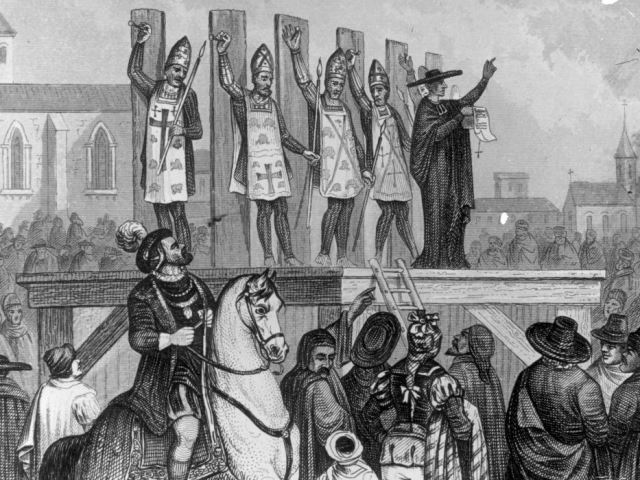Have you ever imagined what the world would look like if the Roman Empire never fell? Unfortunately, this thought will only be in our minds. The once-mighty civilization conquered vast territories, built incredible infrastructure, and left an indelible mark on the world. It took over many lands and left a lasting legacy. But eventually, the Roman Empire did fall.
There have been many questions about how such a mighty force dating beyond the Biblical Times could fall. What led to its downfall?
Well, there are different ideas about how it happened.
Join us on this fascinating journey as we unravel the fall of the mighty Roman Empire.
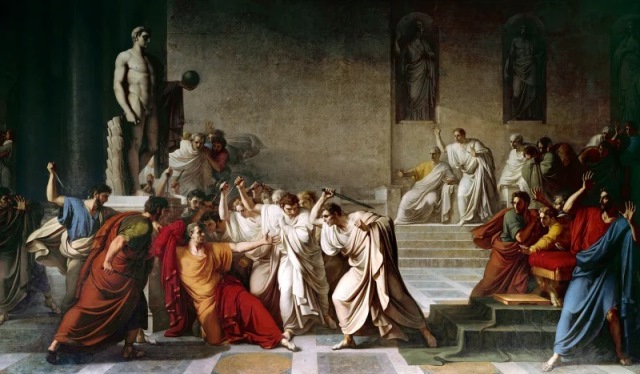
The Roman Empire – a Story of Decline, Decay, and Destruction
At its height, the Roman Empire was responsible for 20% of the world’s population. It was around 5 million square kilometers with around 50 to 60 million inhabitants.
As earlier mentioned, the Roman Empire was once a mighty civilization, but it experienced a decline and decay over time. This was due to various factors, including corrupt leaders, overspending on the military, economic struggles, environmental issues, cultural changes, and invasions from outside forces.
These forces weakened the empire and eventually led to its collapse. Despite its fall, the Roman Empire has notable legacies that are still felt today in many aspects of modern society.
Let’s discuss the many elements that contributed to the fall of the Roman Empire.
Factors That Led to the Fall of the Roman Empire
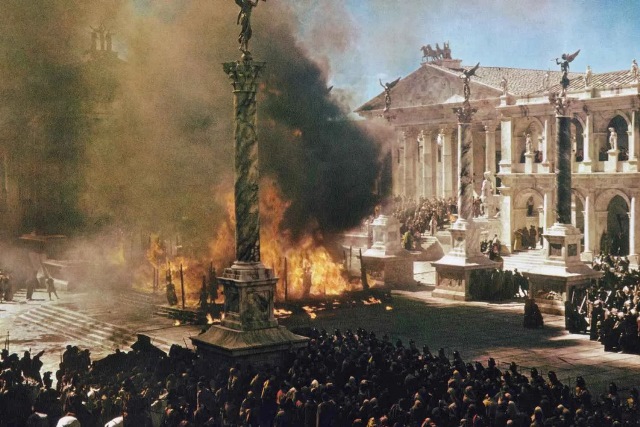
Below are the factors involved in the Roman Empire’s decapitation:
Political Corruption
One of the key factors that contributed to the fall of the Roman Empire was political corruption. As the empire expanded, its political system became increasingly complex, and corruption became rampant.
Bribes became common, and leaders were more concerned with their own personal gain than with the welfare of the empire. This corruption weakened the government and eroded public trust in the political system, making it more difficult to maintain order and stability.
Political corruption in the Roman Empire was widespread. At the highest levels of government, bribery, and patronage were common practices. Officials often used their power to enrich themselves and their allies.
For example, the emperor Nero, who ruled from 54 to 68 CE, was notorious for his extravagance and corruption. He spent lavishly on his pleasures and built a massive palace complex, the Domus Aurea, which was financed by confiscating property from wealthy citizens.
At the local level, corruption was also prevalent. Provincial governors were known to extort money from their subjects and abuse their power for personal gain. This corruption made it difficult for the empire to maintain its legitimacy and weakened its ability to maintain social order.
Read: The Ethiopian Empire and Its Resistance to Colonialism
Military Overspending and Expansion
Another significant factor that contributed to the fall of the Roman Empire was military overspending. As the empire expanded, it needed more soldiers to defend its borders and maintain its territories.
This led to a significant increase in military spending, which strained the empire’s finances and weakened its economy.
In addition, the empire relied heavily on foreign mercenaries to supplement its army, which further depleted its resources.
The empire also had to spend money on fortifications, roads, and other infrastructure necessary for military operations. This spending further strained the empire’s finances and weakened its economic base.
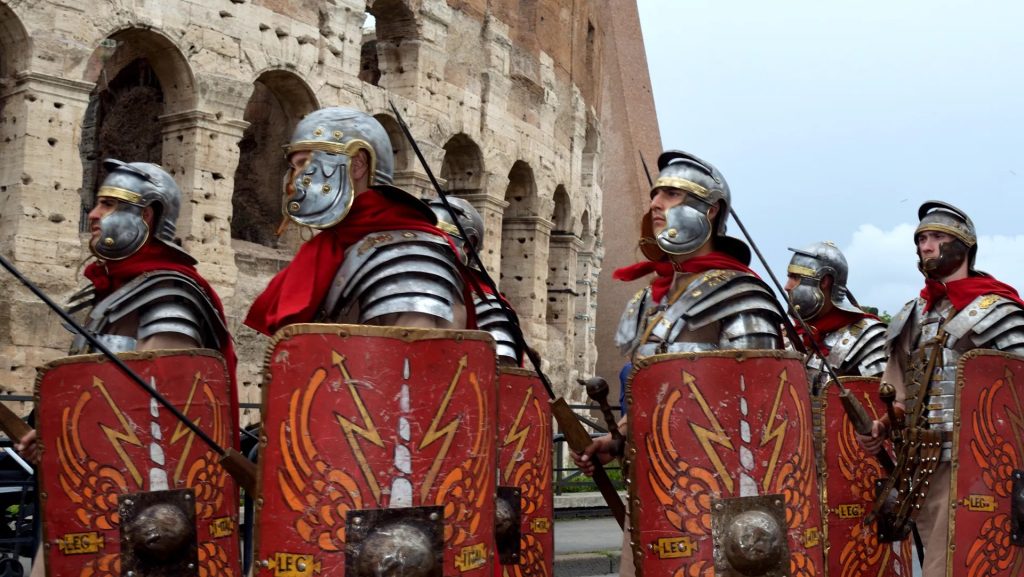
Rome’s military was among the best and most effective in the ancient world, but maintaining it required significant resources. Over time, Rome’s military spending increased, and the empire relied increasingly on recruiting non-Roman soldiers to fight in its armies. These soldiers often lacked the same level of loyalty to the empire as Roman citizens, which further eroded the unity of the empire.
Put Your Tech Company on the Map!
Get featured on Nicholas Idoko’s Blog for just $50. Showcase your business, boost credibility, and reach a growing audience eager for tech solutions.
Publish NowMoreover, Rome’s constant need for expansion placed additional strain on its resources. The empire had to maintain a vast network of military forts and garrisons across its territories, which required large amounts of money and resources.
The need for more land and resources to support Rome’s growing population and economy also drove the empire’s expansion. Hence, leading to costly and ultimately unsustainable wars of conquest.
Economic Struggles
The Roman Empire faced several economic struggles in the centuries leading up to its collapse. One of the key issues was inflation, which was driven by increased military spending, corruption, and an overreliance on imports.
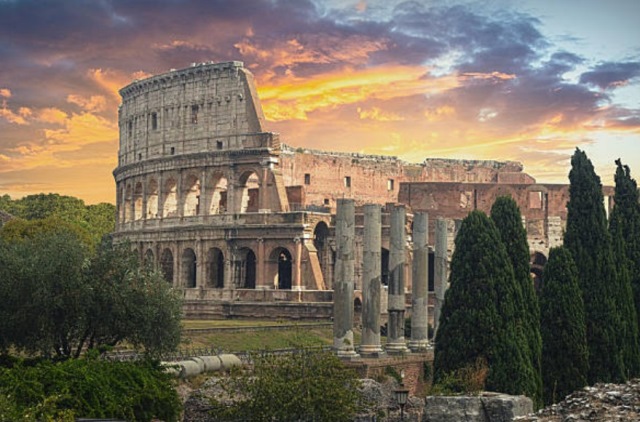
As the empire expanded, it began to import more and more luxury goods from other parts of the world, such as silk from China and spices from India. This increased demand for foreign goods depleted the empire’s resources.
Inflation made it more difficult for people to afford necessities, which led to social unrest.
Read: The 7 Most Influential African Empires
Religious and Cultural Changes
Cultural shifts were another critical factor that contributed to the decline and fall of the Roman Empire. The Roman Empire was renowned for its culture, which the Greeks and Etruscans heavily influenced. And it played a significant role in shaping the Western world.
However, over time, the cultural values and beliefs of the Romans began to shift. One of the most significant cultural changes occurred with the rise of Christianity, which challenged traditional Roman religious beliefs and values.
Christianity emerged in the Roman Empire in the first century AD and spread rapidly throughout the empire. By the fourth century, Christianity had become the dominant religion in the Roman Empire. And in 380 AD, it was declared the empire’s official religion.
The rise of Christianity had a profound impact on Roman culture. Christian values, such as humility, charity, and compassion, challenged the traditional Roman values of pride, strength, and power. Christian teachings also emphasized the importance of personal piety and individual salvation, contrasting with Roman emphasis on civic duty and loyalty to the state.
In addition to the rise of Christianity, other cultural shifts contributed to the decline of the Roman Empire. These included changes in art, literature, and philosophy. The Roman Empire had a rich tradition of art and literature. But over time, these forms of expression began to shift away from the classical models that had been dominant in the past.
New forms of art and literature emerged that were less focused on realism and more concerned with expressing emotion and capturing a sense of spirituality. These cultural shifts reflected broader changes in Roman society, such as a growing sense of individualism and a shift away from the hierarchical structures that characterized earlier periods.
External Factors
Throughout history, the Roman Empire faced threats from external enemies, including Barbarians, invading armies, and rival empires.
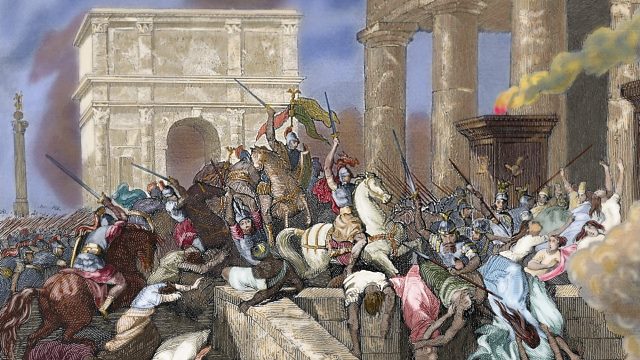
The Barbarian tribes, including the Goths, Vandals, and Huns, were often viewed as primitive and uncivilized by the Romans. However, they were also skilled warriors who posed a significant threat to the security and stability of the Roman Empire.
Beginning in the third century AD, the Roman Empire faced a series of devastating invasions from these tribes.
In 378 AD, the Goths defeated the Roman army at the Battle of Adrianople. It was one of the worst defeats in Roman military history. This defeat opened the door for other barbarian tribes to invade the empire. Before long, the Roman Empire was weakened by a series of attacks.
The Birth of Other Empires
Another external factor that contributed to the decline of the Roman Empire was the rise of other empires and civilizations. The Roman Empire had been the dominant power in the Mediterranean for centuries, but with time, other powers began to emerge that challenged its supremacy.
One of the most significant powers was the Sassanid Empire. It emerged in Persia in the third century AD. The Sassanid Empire was a powerful rival to the Roman Empire, and they engaged in a series of wars that weakened both empires.
Despite its decline and fall, the Roman Empire remains one of world history’s most influential and enduring civilizations. Its political, social, and cultural legacy can still be seen today in fields as diverse as law, language, architecture, and religion.
While the fall of the Roman Empire may seem like a distant and remote event, its lessons and legacy are still relevant today. As we confront the challenges of our own time, it is worth remembering the factors that contributed to the decline and fall of one of the greatest empires in human history.
Put Your Tech Company on the Map!
Get featured on Nicholas Idoko’s Blog for just $50. Showcase your business, boost credibility, and reach a growing audience eager for tech solutions.
Publish NowBy studying the fall of the Roman Empire, we can gain valuable insights into the causes of societal collapse and the importance of maintaining a stable and prosperous civilization. We can also learn from past mistakes and work to build a better future for ourselves and our communities.
Before you go…
Hey, thank you for reading this blog to the end. I hope it was helpful. Let me tell you a little bit about Nicholas Idoko Technologies. We help businesses and companies build an online presence by developing web, mobile, desktop, and blockchain applications.
We also help aspiring software developers and programmers learn the skills they need to have a successful career. Take your first step to becoming a programming boss by joining our Learn To Code academy today!
Be sure to contact us if you need more information or have any questions! We are readily available.
[E-Books for Sale]
1,500 AI Applications for Next-Level Growth: Unleash the Potential for Wealth and Innovation
$5.38 • 1,500 AI Applications • 228 pages
Are you ready to tap into the power of Artificial Intelligence without the tech jargon and endless guesswork? This definitive e-book unlocks 1,500 real-world AI strategies that can help you.
See All 1,500 AI Applications of this E-Book
750 Lucrative Business Ideas: Your Ultimate Guide to Thriving in the U.S. Market
$49 • 750 Business Ideas • 109 pages
Unlock 750 profitable business ideas to transform your future. Discover the ultimate guide for aspiring entrepreneurs today!
See All 750 Business Ideas of this E-Book
500 Cutting-Edge Tech Startup Ideas for 2024 & 2025: Innovate, Create, Dominate
$19.99 • 500 Tech Startup Ideas • 62 pages
You will get inspired with 500 innovative tech startup ideas for 2024 and 2025, complete with concise descriptions to help you kickstart your entrepreneurial journey in AI, Blockchain, IoT, Fintech, and AR/VR.
We Design & Develop Websites, Android & iOS Apps
Looking to transform your digital presence? We specialize in creating stunning websites and powerful mobile apps for Android and iOS. Let us bring your vision to life with innovative, tailored solutions!
Get Started Today



